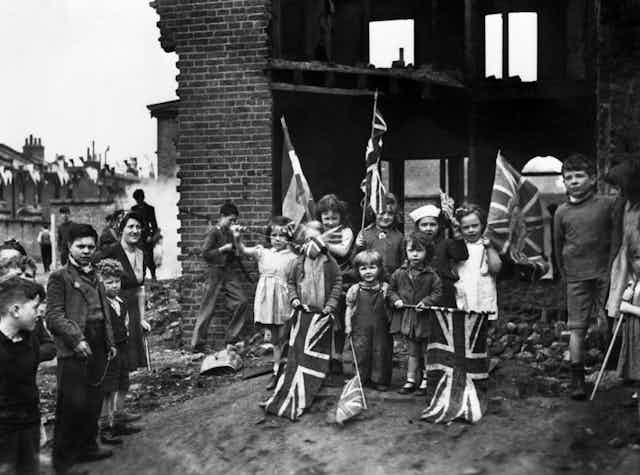In this fourth episode of Recovery, a series from The Anthill Podcast exploring key moments in history when the world recovered from a major crisis or shock, we’re looking at what happened in the UK after the second world war.
The second world war decimated landscapes, killed tens of millions of people and left many more unable to work, in need of long-term healthcare and help to rebuild their lives.
In the UK, some had been calling for action to deal with poverty, squalid housing and better education since before the conflict, but the particular circumstances of the war seemed to provide the impetus needed to get things moving.
The recovery project that followed the end of the war in 1945 transformed the nation into one that provided free healthcare for all, better education and massive housing regeneration.
Pat Thane, visiting professor of history at Birkbeck College, takes us through the recommendations of a landmark government report written by William Beveridge that got the whole project moving. This set out a comprehensive cradle-to-grave welfare system designed to tackle the five giants of want, squalor, idleness, ignorance and disease.
Bernard Harris, professor of social policy at the University of Strathclyde, reveals how this report turned into a series of changes to the law that ultimately constructed the welfare state. That included establishing the world-famous National Health Service, later described as Nigel Lawson, chancellor under Prime Minister Margaret Thatcher, as “the closest thing the English people have to a religion”. He explains how the shared trauma of the war helped people imagine a different future in which a greater number of people would be cared for by the government.
Pippa Catterall, professor of history and policy at the University of Westminster, discusses the political context of the post-war period in the UK. After the suffering of the conflict, it was the left-wing Labour party that grasped how urgently the public wanted bold new thinking. The recovery promised by Labour Party leader Clement Attlee was based around a total restructuring of the state, and voters were prepared to take the plunge – not least because more of them had been exposed to hardship during the war.
Finally, the panel explores what lessons this unique period in history can offer us today, as governments look to rebuild after the coronavirus pandemic. After years of retreat, states are stepping in on an unprecedented scale to offer rescue packages. Could we be witnessing the rebirth of the welfare state?
You can read more about the aftermath of the second world war and the welfare state as well as other articles in our Recovery series to accompany this podcast.
This episode was produced by Gemma Ware and Annabel Bligh, with sound design by Eloise Stevens.









